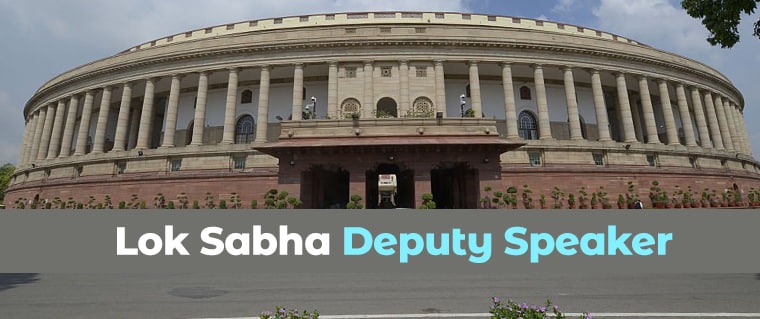 Image Source: IAS Gyan
Image Source: IAS Gyan
The Deputy Speaker of the Lok Sabha is far more than a ceremonial figure—this role is a constitutional imperative, vital for the seamless functioning and integrity of India’s parliamentary system. As the second-highest authority in the Lok Sabha, the Deputy Speaker acts as a crucial safeguard for legislative continuity, impartiality, and democratic balance.
Key Functions and Significance
-
Ensures uninterrupted proceedings: In the Speaker’s absence or if the office falls vacant, the Deputy Speaker presides over the House, wielding all the powers of the Speaker. This prevents legislative paralysis and maintains procedural order.
-
Upholds neutrality and trust: Upon election, the Deputy Speaker is expected to rise above party lines, reinforcing public trust and impartiality in parliamentary conduct.
-
Promotes bipartisan cooperation: By established convention, the post is often offered to the Opposition. This tradition fosters inclusivity, consensus-building, and a healthy balance of power in the House.
-
Administrative and committee leadership: The Deputy Speaker shares administrative duties with the Speaker and often chairs key parliamentary committees, contributing to detailed legislative scrutiny and quality deliberation.
Constitutional mandate: Article 93 of the Constitution requires the Lok Sabha to elect both a Speaker and Deputy Speaker as soon as possible, underlining the necessity of this office for rule-based governance.
Current Concerns and Calls for Reform
-
The persistent vacancy of the Deputy Speaker’s post, as seen in the 17th and 18th Lok Sabha, has raised alarms about the centralization of power and the erosion of parliamentary conventions.
-
Experts and constitutional authorities advocate for statutory timelines to ensure timely election, and some suggest empowering the President to initiate the process if delayed.
-
The absence of a Deputy Speaker can create a leadership vacuum during emergencies, undermine consensus politics, and diminish the House’s ability to hold the executive accountable.
Why This Matters Now
The Deputy Speaker’s office is not symbolic or optional—it is a cornerstone of legislative stability, democratic resilience, and institutional integrity. Timely appointment and respect for its conventions are essential to uphold the spirit of the Constitution and the credibility of India’s parliamentary democracy.
Sources: The Hindu, Drishti IAS, NEXT IAS, ForumIAS, VisionIAS
Advertisement
Advertisement





